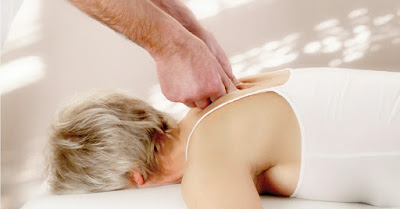Finding
and releasing your trigger points will be the focus of a Trigger Point Massage
Brisbane session. Trigger points are classified into two types. Active and
dormant. Active trigger points are those that refer to pain and encourage
people to seek pain relief. A dull ache, numbness, tingling, or burning
sensation can be caused by active trigger points.
If
nothing is done to treat the trigger points, other muscles in the area can pick
up the slack, but this may contribute to secondary trigger points developing in
those muscles or areas due to the increased workload. If you're experiencing
pain, it's best to get Trigger Point Massage Brisbane as soon as
possible.
Pain
is not referred to by latent trigger points. These are involuntary muscle
contractions that often go unnoticed until touched. These can sit for months,
if not years. Despite the fact that they have no pain referral, latent trigger
points have a negative effect on the body. They can cause restricted movement,
stiffness, and muscle weakness, as well as distorted or irregular movement
patterns.
A
session by Trigger Point Massage Therapist Brisbane will consist of
locating and releasing both active and latent trigger points in order to reduce
pain or discomfort, increase movement, reduce stiffness, and help to restore
muscles to their optimum levels.
What Are the Advantages of Trigger Point Therapy?
Trigger point therapy at massage therapy clinic Brisbane can aid in the reduction of:
- Headaches
- Neck ache
- Back ache
- Shoulder ache
- Muscular ache
- Aches that are dull
- Constant tension
A
trigger point is a muscle that is involuntarily contracted, tight, and tender.
Myofascial is a spiderweb-like substance that surrounds all of our muscles, bones,
and vital organs.
Myofascial
refers to muscle tissue (myo) and the connective tissue that surrounds it
(fascia). Myofascial pain is frequently caused by muscle injury or repetitive
strain. When muscles are stressed or injured, they frequently form trigger
points, which look like contracted knots and cause pain and tightness.
Trigger
points are painful when pressed, cause muscle fibre shortening, and have a
special property known as referred pain. Referred pain occurs when a trigger
point in one muscle causes pain in another.


No comments:
Post a Comment